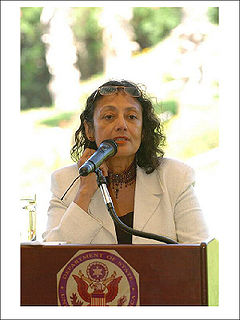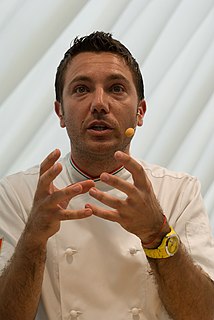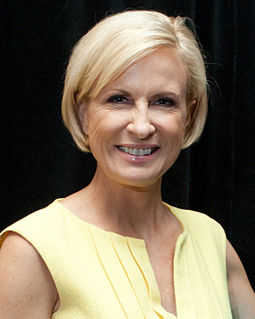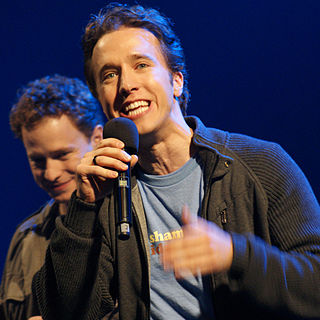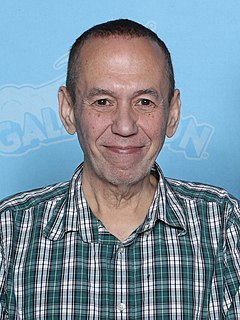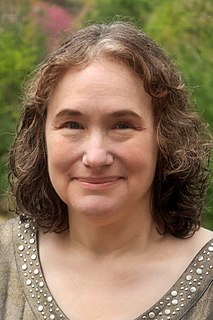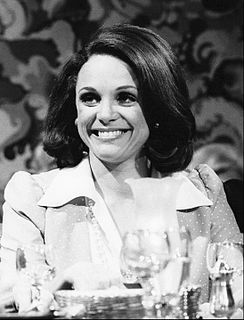A Quote by Desmond Tutu
Mother Teresa, you could say many things about her, but certainly you would not say she was macho. Anything but.
Related Quotes
She yearned to see her mother again, and Robb and Bran and Rickon… but it was Jon Snow she thought of most. She wished somehow they could come to the Wall before Winterfell, so Jon might muss up her hair and call her “little sister.” She’d tell him, “I missed you,” and he’d say it too at the very same moment, the way they always used to say things together. She would have liked that. She would have liked that better than anything.
Mother Teresa's detractors have accused her of overemphasizing Calcuttans' destitution and of coercing conversion from the defenseless. In the context of lost causes, Mother Teresa took on battles she knew she could win. Taken together, it seems to me, the criticisms of her work do not undermine or topple her overall achievement.
[Grandfather] would manufacture funnies with Grandmother before she died about how he was in love with other women who were not her. She knew it was only funnies because she would laugh in volumes. 'Anna,' he would say, 'I am going to marry that one with the pink hat.' And she would say, 'To whom are you going to marry her?' And he would say, 'To me.' I would laugh very much in the back seat, and she would say to him, 'But you are no priest.' And he would say, 'I am today.' And she would say, 'Today you believe in God?' And he would say, 'Today I believe in love.
I feel strongly that Mother Teresa’s life has a great message for young people. We so often feel powerless to do anything about the many problems in the world around us. We are so often left to wonder whether one person can possibly make a difference. Mother Teresa said yes, we can. Her life was resounding proof that it is possible
That's what I do. I just let Mother Earth use me, in many, many instances, especially when I am working with pollution. She is a very real Spirit - she is your mother, and if you open to Her, she can come in and use you in a way that is very powerful. That is what Mother Teresa has done, by being selfless.
Mother Teresas detractors have accused her of overemphasizing Calcuttans destitution and of coercing conversion from the defenseless. In the context of lost causes, Mother Teresa took on battles she knew she could win. Taken together, it seems to me, the criticisms of her work do not undermine or topple her overall achievement.
I always felt bad for Mother Teresa. Mother Teresa lived a whole life helping starving children and dying villages, but she could never be declared a saint 'cause she never actually performed a miracle. And it was towards the end, she was desperate to perform a miracle, so she would go up to starving children and go, 'What's that behind your ear? It's a quarter!
I mean, her father was an alcoholic, and her mother was the suffering wife of a man who she could never predict what he would do, where he would be, who he would be. And it's sort of interesting because Eleanor Roosevelt never writes about her mother's agony. She only writes about her father's agony. But her whole life is dedicated to making it better for people in the kind of need and pain and anguish that her mother was in.
When I search myself carefully I do think it's from my mother. I even feel strange saying that. Most people, I believe, when they're asked profound questions about their own persona are not really able to enunciate it, because it's a combination of so many things. But certainly influences early on that I felt from my mother. I wouldn't say she was "political" per se; she was sensitive to other people.
Mother Teresa was a hero of mine for a long time. I just like the way she took on the world from a very humble place. She has a great quote. When she was leaving her monestary to start Sisters of Charity, she had two pennies. She was asked by a head priest what she could possibly do with two pennies. She said, 'Nothing. But with two pennies and God, I can do anything'.
Sometimes she wished for someone she could tell about her problems, just to be able to say, ‘I’m in love with a man and I can’t have him.’ But that would only lead to questions she couldn’t answer, so she kept the secret and the pain inside, hoping someday she would no longer feel as if half of her were missing.
I heard that someone asked Mother Teresa what was most important in her work. I thought she'd say the Rosary but she said, 'My nuns and I take very good care of ourselves so we can tend to the lepers and do whatever we need to assist.' If you're strong, or at least not hurting, you can inspire others.


